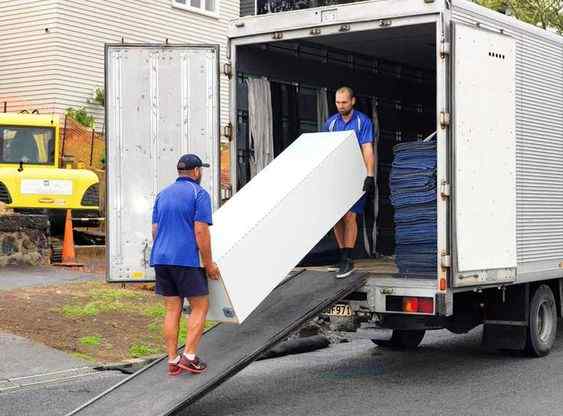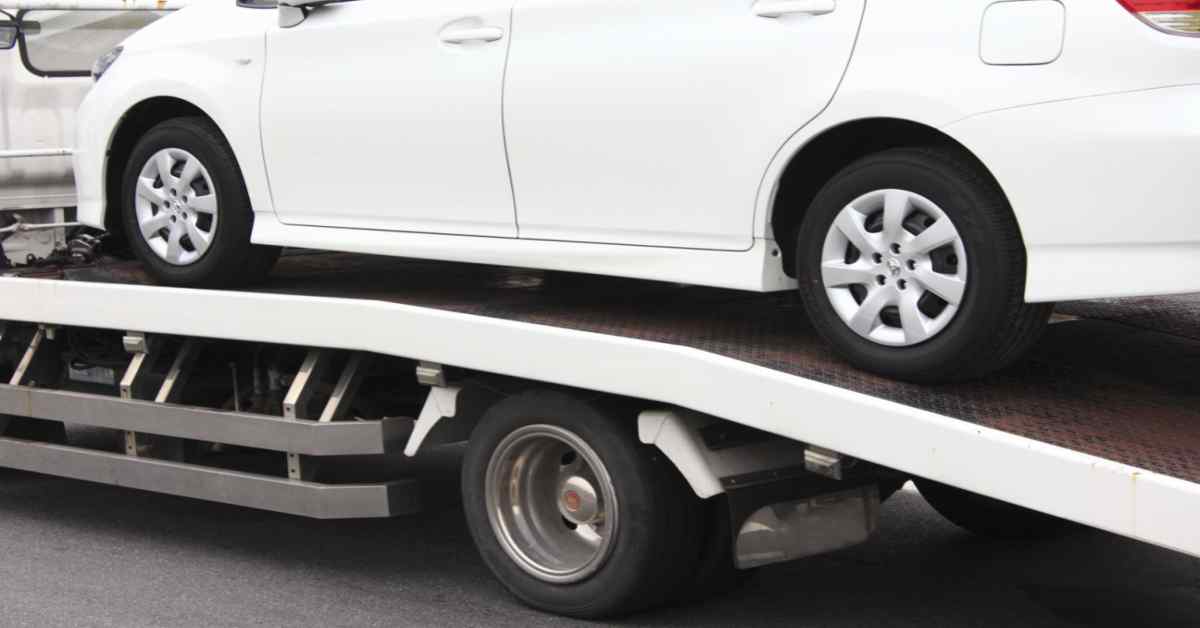Table of Contents
Quality Service Guarantee Or Painting Free

Get a rental agreement with doorstep delivery

Find the BEST deals and get unbelievable DISCOUNTS directly from builders!

5-Star rated painters, premium paints and services at the BEST PRICES!
Loved what you read? Share it with others!


Submit the Form to Unlock the Best Deals Today
Help us assist you better
Check Your Eligibility Instantly

Experience The NoBrokerHood Difference!
Set up a demo for the entire community
Transit Insurance: Types, Cost Calculation and More
Table of Contents
Moving to a new place can be an exciting experience, but it also involves the risk of damage or loss of your valuable belongings. Transit Insurance plays a crucial role in this phase, offering peace of mind that your items are protected. Packers and movers are often hired to assist with the relocation process; however, accidents can occur during the transportation of your possessions. To safeguard your belongings during these movements, securing Transit Insurance coverage is indispensable.
What is Meant By Transit Insurance?
Transit insurance is primarily offered by packers and movers and covers the risk of damage or loss to goods while they are being transported from one location to another by road, air, or ocean. In simple words, transit insurance online is a policy that compensates you if your goods are damaged during transit due to unforeseen
Is Transit Insurance Necessary?
Transit insurance plays a crucial role in safeguarding goods during transportation. Whether you're moving personal belongings or commercial cargo, the risk of loss due to accidents or theft is significant. For instance, consider the statistics: research indicates that approximately 5% of shipments experience some form of issue en route, ranging from minor damages to total loss.
Quality Service Guarantee Or Painting Free

Get a rental agreement with doorstep delivery

Find the BEST deals and get unbelievable DISCOUNTS directly from builders!

5-Star rated painters, premium paints and services at the BEST PRICES!
Taking real-life scenarios into account, the importance of transit insurance becomes clear. Imagine a truck transporting electronics—valued at thousands of dollars—getting into an accident, damaging all the goods. Without transit insurance, the owner would face substantial financial losses. However, with proper coverage, they can claim compensation and mitigate financial setbacks.
Transit insurance is more than just a precaution; it's a necessary safeguard for managing the risks associated with transporting goods. It provides peace of mind and financial protection, making it a wise investment for both individuals and businesses engaged in frequent or high-value shipments.
Transit Insurance: Protecting Goods in Transit from Damage and Loss

Moving can be both an exciting and stressful experience. While you’re looking forward to moving to a new place, the thought of your belongings getting damaged or lost during transit can be nerve-wracking. That’s where transit insurance for packers and movers comes into play.
Even though you might have hired a reliable moving company, accidents can happen during transportation. A sudden bump on the road or a sharp turn can cause items in the back of the truck to shift, potentially leading to damage. And let's be real, no one wants to deal with the headache of replacing or repairing their belongings out of pocket.
This is where transit insurance comes in handy. It provides an extra layer of protection for your items in case of any unfortunate incidents during the move. In case of an accident or damage, the insurance company will compensate you for the loss incurred.
Transit Insurance Policy
A transit insurance policy is a tailored insurance coverage designed to protect goods while they are being transported from one location to another. This policy covers the risks of loss or damage to items due to accidents, natural disasters, theft, or other unforeseen events during transit. Whether the goods are moved by road, rail, air, or sea, transit insurance provides a safety net for businesses and individuals alike, ensuring that the value of their goods is secured against potential transit-related mishaps. It is a critical component for anyone involved in the transportation of goods, offering financial security and peace of mind in the logistics process.
Types of Transit Insurance

Confused what does transit cover? When considering transit insurance, understanding the different types available can help you choose the best coverage for your needs. There are several types of transit insurance, each designed to cater to specific situations and risks.
1. Single Transit Insurance
This type of insurance is ideal for individuals or businesses that need coverage for a one-time shipment. It's often used for moving personal effects during a home move or for a single shipment of goods in a commercial setting. Single transit insurance covers losses or damages to the cargo from the time it leaves the initial location to its final destination.
2. All-Inclusive Insurance
All-inclusive insurance offers comprehensive coverage that goes beyond the basics. It includes protection against a wide range of risks, including theft, loss, and damage due to accidents or natural disasters. This type is suited for businesses that frequently ship goods and require a higher coverage limit to protect their valuable cargo.
3. Third-Party Liability Insurance
This insurance is crucial for covering liabilities that may arise if the insured's goods cause damage to a third party. For example, if during transport, the goods were to damage another cargo, or property, or cause injury, this insurance would cover the legal liabilities and compensation costs.
Comparison Table of Transit Insurance Types:
| Insurance Type | Key Features | Benefits |
| Single Transit Insurance | Covers one-time shipments | Cost-effective for occasional shippers |
| All-Inclusive Insurance | Broad coverage, higher limits | Comprehensive protection for frequent and high-value shipments |
| Third-Party Liability Insurance | Covers damages to third parties | Protects against legal liabilities during transport |
Choosing the right type of transit insurance depends on the frequency of your shipments, the value of the goods being transported, and the specific risks you want to cover. Each type offers different levels of protection and is tailored to different transporting needs.
How to Choose the Right Transit Insurance
Selecting the right transit insurance is essential for ensuring your goods are adequately protected during transportation. Here’s a straightforward guide to help you make the best choice:
1. Assess Your Needs:
Begin by evaluating the type of goods you are shipping, their value, and how often you ship. High-value items or frequent shipments require more comprehensive coverage to minimise financial risk.
2. Understand the Coverage Options:
Familiarise yourself with different types of transit insurance policies available:
- Single Transit Insurance for one-off shipments.
- Open Cover Policies for frequent shippers.
- All Risk Policies offer extensive coverage against all physical loss or damage from external causes.
3. Consider the Mode of Transport:
Different modes of transportation present different risks. For instance, air freight is typically faster but could be more expensive than sea or road transport. Choose a policy that offers specific coverage suited to your transportation method.
4. Compare Insurer Offers:
Get quotes from several insurance companies to compare coverage details, exclusions, premiums, and claim settlement ratios. Look for insurers with a good track record in transparency and customer service.
5. Read the Fine Print:
Pay close attention to the policy exclusions, deductibles, and coverage limits. Understanding these details will help you avoid surprises during the claim process.
6. Check for Additional Benefits:
Some policies might offer additional benefits like coverage for warehousing risks or delays in shipment. These can be beneficial depending on your shipping frequency and the nature of the goods.
7. Seek Professional Advice:
If you're unsure about the specifics of what you need, consult with a professional insurance broker. They can provide personalised advice based on your shipping activities and risk exposure.
Transit Insurance Charges
Transit insurance charges typically depend on various factors such as the value of the goods being transported, the mode of transportation, the distance travelled, and the level of coverage required. These charges can vary significantly and are usually calculated as a percentage of the total value of the goods being insured or based on a flat rate per unit of weight or volume. It's advisable to obtain quotes from insurance providers to determine the specific charges applicable to your shipment.
What Does Transit Insurance Cover?
Transit insurance is designed to protect goods from unforeseen events while they are being transported. Typically, this type of insurance covers damage caused by accidents, theft, and natural disasters. Whether the goods are being moved by truck, ship, or plane, transit insurance provides a layer of financial protection against these risks.
Coverage Details:
- Accidents: Any physical damage to the goods due to a collision, overturning, or other similar incidents during transit.
- Theft: Loss of goods due to robbery or burglary while in transit.
- Natural Disasters: Damages caused by natural events such as floods, earthquakes, or storms that occur while the goods are being transported.
Exclusions to Note:
It's important to be aware that transit insurance does not cover damages that occur before or after the transit period, nor does it cover wear and tear from regular use. It specifically focuses on losses incurred during the transportation process.
Comparison of Coverage Options:
| Coverage Type | Accidents | Theft | Natural Disasters | Exclusions |
| Basic | Yes | No | No | Pre/post-transit damages, wear & tear |
| Comprehensive | Yes | Yes | Yes | Pre/post-transit damages, wear & tear |
This table helps illustrate the differences between basic and comprehensive transit insurance plans. While basic coverage might be sufficient for less valuable or less risk-prone goods, comprehensive coverage offers a broader safety net suitable for high-value or high-risk shipments.
How Much Does Transit Insurance Cost?
The cost of transit insurance is influenced by several key factors, which help in estimating the insurance costs for your shipments.
Factors Affecting Cost:
- Value of Goods: The insurance premium is typically higher for more valuable goods due to the increased financial risk to insurers if a claim is made.
- Distance: Longer transportation distances generally result in higher premiums due to the greater risk of accidents or losses over extended routes.
- Mode of Transport: The type of transportation (air, sea, road, rail) also affects the cost, with each mode presenting different levels of risk and associated insurance costs.
Cost Estimation Example:
For a shipment of electronics valued at ₹5,00,000 transported over a distance of 800 kilometres by road, the transit insurance might cost about 0.5% to 2% of the cargo's value, depending on additional risk factors. This means the insurance could range from approximately ₹2,500 to ₹10,000.
Coverage Limits and Cost Impact:
Coverage limits set the maximum amount an insurer will pay in the event of a claim. Higher coverage limits typically result in higher premiums. For instance, a policy with a limit of ₹10,00,000 will generally cost less than one with a limit of ₹50,00,000, given all other conditions are the same.
The cost of transit insurance is influenced by the value of the goods, the transport distance, the mode of transportation, and the policy’s coverage limits. By considering these factors, shippers can better estimate their insurance costs and choose the appropriate coverage to protect their cargo financially during transit.
How to Calculate the Cost of Goods in Transit Insurance?

When calculating the cost of goods in transit insurance, there are several factors to consider such as–
- The value of the goods being shipped,
- The mode of transportation,
- The distance travelled and
- The type of coverage needed is an important consideration.
To calculate the cost of goods in transit insurance:
- Determine the average shipment value of the goods being transported.
- Contact your moving company to obtain a breakdown of their goods in the transit insurance policy to see what is covered and at what cost.
- Different insurance policies may have different transit insurance coverage limits and deductibles, so be sure to discuss these details with your insurer and moving company to ensure that you have adequate coverage that fits your needs.
Typical inclusions of a goods-in-transit insurance policy can include coverage for loss of goods during transit, theft of goods during transit, and damage caused by accidents during transit.
Transit Insurance Coverage
Transit insurance coverage protects goods against loss or damage while they are being transported by land, sea, or air. Transit insurance coverage comes with various limit options tailored to suit different needs and budgets. These limits determine the maximum amount that the insurance company will pay out in the event of a claim. Common coverage limits include:
- Basic Coverage: This typically offers coverage up to a predetermined amount per shipment, providing essential protection for goods in transit.
- Comprehensive Coverage: With higher limits, comprehensive coverage offers broader protection, including coverage for a wider range of risks such as theft, damage, and natural disasters.
- Specified Perils Coverage: Some policies may offer coverage for specific perils such as fire, flood, or collision, with limits set accordingly based on the perceived risk of each peril.
- All-Risk Coverage: This type of coverage provides protection against all risks except those specifically excluded in the policy. It offers the highest level of protection with flexible coverage limits to suit individual needs.
It's important to note that the cost of goods in transit insurance can vary depending on several factors. For example, the distance travelled can affect the cost, with longer distances generally resulting in higher insurance costs. Additionally, the type of coverage needed can also impact the cost, with comprehensive coverage being more expensive than basic coverage.
To get an accurate quote for goods in transit insurance, it’s important to work with a reputable insurance provider who can help you understand the coverage options available and provide a quote based on your specific needs.
How to Claim Transit Insurance From Packers and Movers?

Filing a claim for transit insurance doesn't have to be complicated. Here's a clear and straightforward guide on how to proceed if you need to make an insurance claim for goods damaged or lost during transit.
1. Notify the Insurer:
As soon as you discover loss or damage, contact your insurance provider immediately. Most policies have a specific timeframe within which you must report an incident to be eligible for compensation.
2. Document the Damage:
Take detailed photos and videos of the damaged goods. These will serve as evidence of the extent and nature of the damage. If there are any witnesses, their accounts can also be helpful.
3. Collect Relevant Documentation:
Gather all necessary documents that will support your claim. This typically includes:
- The original insurance policy or certificate.
- The shipping documentation, including the bill of lading, airway bill, or consignment note.
- An inventory list of the items shipped and their condition prior to shipping.
- Receipts or invoices proving the value of the goods.
- A detailed statement of the claim, specifying the losses incurred.
4. Submit a Preliminary Claim Form:
Fill out a claim form provided by your insurance company. This form should detail the incident and the estimated loss. Submit this form along with the supporting documentation as soon as possible.
5. Arrange for Assessment:
The insurance company will likely arrange for a surveyor or adjuster to inspect the damage and verify the claim. Be sure to provide them with all the necessary information and access to the damaged goods.
6. Follow Up Regularly:
Stay in regular contact with your insurer to monitor the progress of your claim. Following up will help ensure that your claim is processed efficiently.
7. Review the Settlement Offer:
Once the assessment is complete, the insurer will make a settlement offer. Review this offer carefully to ensure it covers your losses appropriately. If you disagree with the assessment, you can negotiate or appeal the decision.
8. Complete Any Additional Paperwork:
Once you accept the settlement offer, there may be additional paperwork to finalise the claim. Complete these promptly to receive your compensation without delay.
Benefits of Transit Insurance
Transit insurance offers critical protection for goods and merchandise during transport, whether by land, sea, or air. Understanding the benefits of this insurance can help businesses and individuals make informed decisions about safeguarding their assets while in transit. Here are the key advantages:
1. Financial Protection:
The primary benefit of transit insurance is financial security. It covers the cost of replacement or repair of goods damaged during shipping. This is crucial for businesses dealing with valuable goods, as it mitigates the financial impact of losses due to accidents, theft, or environmental conditions.
2. Risk Management:
Transit insurance allows companies to manage the risks associated with transporting goods over long distances. By transferring the risk to an insurance company, businesses can focus more on core operations without worrying about potential transit-related losses.
3. Enhances Credibility:
Businesses that insure their goods for transit are often seen as reliable and trustworthy by partners and customers. This perception can enhance business relationships and open up new opportunities.
4. Peace of Mind:
For both businesses and individuals, knowing that their goods are insured against loss or damage during transit provides peace of mind. This is especially valuable when transporting irreplaceable items or large quantities of merchandise.
5. Compliance and Contractual Requirements:
In many cases, having transit insurance is a contractual requirement. Clients or partners may insist on insurance to ensure that their interests are protected in the event of damage or loss during transportation.
6. Customisable Coverage:
Transit insurance policies are highly customisable, allowing policyholders to choose coverage options that best suit their specific needs. Whether it’s covering international shipments or providing protection for specific types of goods, insurers offer various levels of protection to match different requirements.
7. Quick and Easy Claim Process:
Many insurance providers offer streamlined claim processes, making it easier and faster for policyholders to report incidents and receive compensation. This efficiency is crucial in minimising downtime and restoring operations quickly.
Transit Insurance in India
Transit insurance in India plays a vital role in the protection of goods as they move across the country’s vast and diverse landscapes. Given India's extensive road, rail, and maritime networks, transit insurance becomes crucial for businesses and individuals involved in the transportation of goods. Here’s a brief overview of the specific context of transit insurance within the Indian framework:
- Extensive Logistics Network: India’s extensive logistics network, which includes long roadways, expansive railway systems, and significant maritime trade routes, poses various risks such as accidents, theft, and natural disasters.
- Regulatory Environment: The Insurance Regulatory and Development Authority of India (IRDAI) regulates transit insurance policies, ensuring they meet certain standards and protections for policyholders.
- Economic Impact: As the Indian economy grows and more goods are transported domestically and internationally, the demand for robust transit insurance policies increases to protect these economic activities.
- Local and International Trade: With India being a significant player in both local and international markets, transit insurance helps safeguard goods from potential risks during export and import operations.
Comparison Table of Transit Insurance Types in India:
| Insurance Type | Coverage | Typical Use Case | Benefits |
| Single Transit | Specific shipment | Used for one-time transport of goods | Cost-effective for rare shipments |
| Open Cover | Multiple Shipments | Ideal for businesses with frequent shipments | Simplifies management of multiple policies |
| All Risk | Comprehensive cover | Suitable for high-value goods | Provides extensive protection against all risks |
| Sales Turnover Policy | Annual coverage | Covers all movements of goods within the year | Flexibility and comprehensive coverage for businesses |
How Can NoBroker Help?
NoBroker Packers and Movers transit insurance protects your possessions during transportation against any damage or loss that may occur. This can provide peace of mind to those who are worried about their belongings being damaged or lost during the move.
NoBroker's app allows customers to reserve a date and time for their move, get an instant and affordable quote, and save up to 30% on moving costs. If you are looking for an affordable and convenient option for your next move, click the link below.

Frequently Asked Questions
Ans: Transit insurance for goods by road is coverage that protects against loss or damage to goods transported by road, essential for mitigating financial risks due to accidents or theft.
Ans: Household transit insurance offers financial protection against damage or loss of personal belongings during the shifting process, ensuring peace of mind for homeowners.
Ans: To avail of transit insurance, you will need to submit the original invoice of goods in transit, carrier details, photographs of the incident and damage that occurred, and a duly filled and signed claim form to the company.
Ans: Transit insurance for household goods is crucial as it provides financial protection against potential losses due to damages or theft while relocating, ensuring peace of mind during the move.
Ans: A transit insurance calculator is a useful tool that allows you to input specific details about your shipment, such as value, distance, and transport mode, to quickly estimate the cost of your transit insurance premium.
Loved what you read? Share it with others!
NoBroker Packers And Movers Testimonials
Most Viewed Articles

10 Best Local Packers and Movers Services in Bengaluru: Discover Efficiency With Convenience
December 1, 2024
531252+ views

Auspicious Days for Griha Pravesh Muhurat 2025 : Month-Wise Date & Time
January 9, 2025
202039+ views

Bike Transport by Train: A Step-by-Step Process 2025
December 19, 2024
52076+ views

Best Car & Bike Shifting Services in Bangalore
January 11, 2023
40946+ views

Best Vehicle Shifting Services in Mumbai
January 11, 2023
37938+ views
Recent blogs in
Creative Griha Pravesh Decoration Ideas That Work Wonders
January 16, 2025 by Ananth
GST on Packers and Movers: How Much You Should Pay for Relocation in 2025
January 15, 2025 by Manu Mausam
NoBroker Packers and Movers Reviews
January 15, 2025 by NoBroker.com
Get Your Free Quote Now! Compare and Save on NoBroker Packers and Movers
January 15, 2025 by NoBroker.com



Join the conversation!